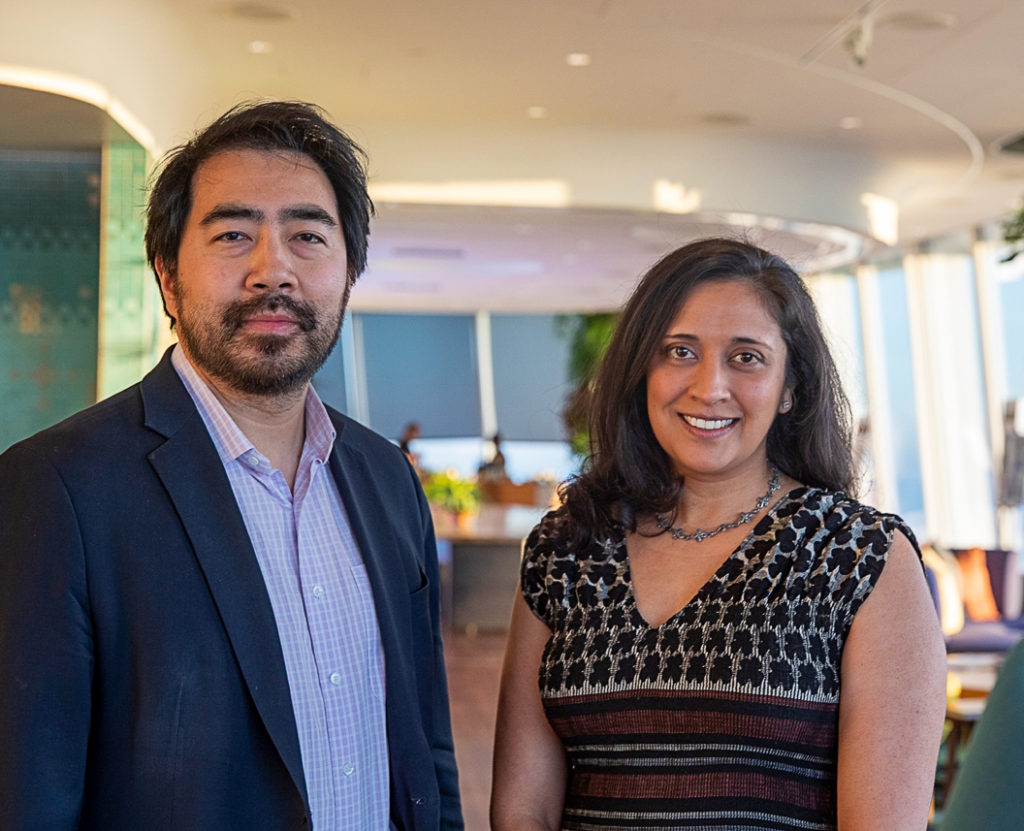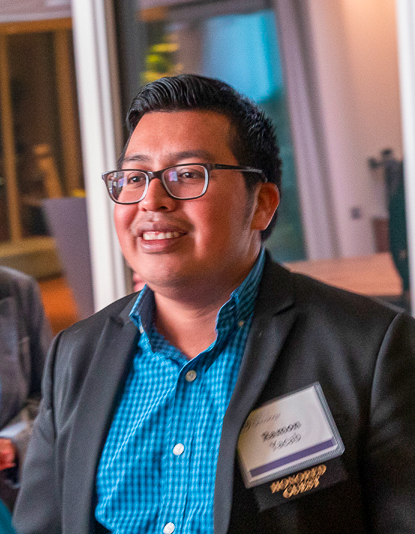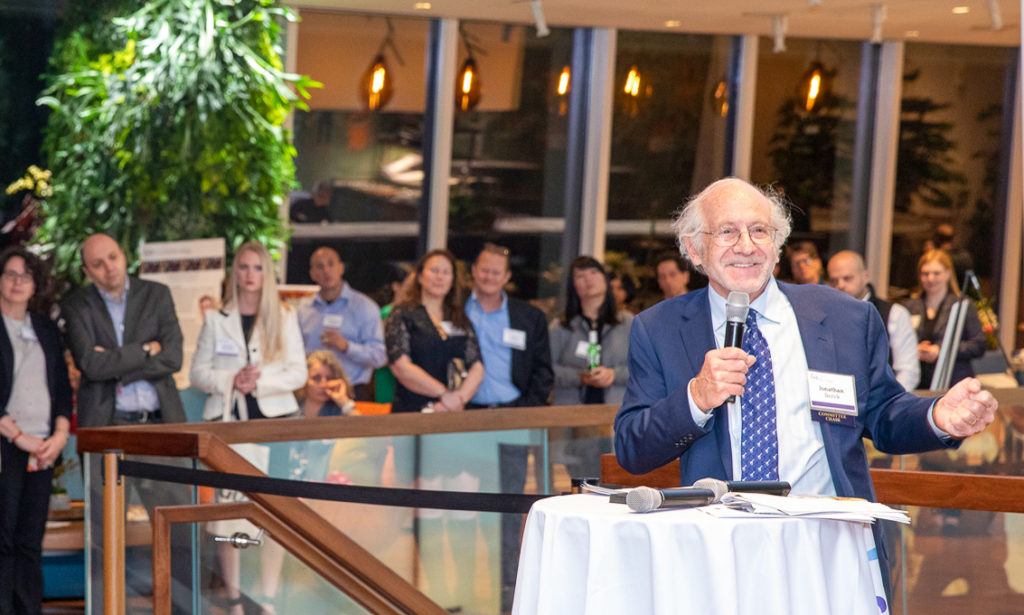Published: 02/04/2020
By Jody Berger
Ami Bhatt and Franklin Huang each experienced the pain of losing someone they loved to cancer. And as physician-scientists, they knew that their experiences were sadly universal.
“Everyone in this room has been touched by cancer,” Bhatt, an Assistant Professor of Medicine at Stanford, told the crowd of more than 200 people gathered for the Bay Area launch of Global Oncology. In Boston in 2010, Bhatt and Huang started the nonprofit to address another sad truth: that as much as cancer is universal, access to quality care is not.
“Almost ten years ago, Global Oncology started as a hope that Ami and I shared,” Huang said, “the hope that people all over the world, from all economic and cultural backgrounds could access both the compassionate cancer care and education needed to understand and deal with cancer.”
Currently, 80 percent of cancer deaths occur in developing countries and just five percent of the resources expended on cancer care go to those countries.
“The annual global expenditure on cancer in developing countries—where 85 percent of the world’s population lives—is roughly $500 million,” Bhatt said. “That is $18 for each person who develops cancer each year.”

To address the international disparities, Bhatt and Huang chose to focus their energies on three areas: raising awareness, educating patients and families about therapies, and partnering with doctors, nurses and governments to increase capacity to provide high quality care.
And in ten years, the two physicians have shown a consistent ability to recruit volunteers, engage allies and leverage local successes into programs that reach millions of people in multiple countries.
Early on, they developed Cancer and You, a picture-based, culturally sensitive booklet designed to help patient’s in Malawi understand the diagnosis and treatment, reduce stigma, and have better conversations with doctors. Bhatt and Huang wanted to put something in patients’ hands to ensure that no patient stopped treatment because they didn’t have enough information about the care they were receiving.
The booklet has now been translated into 20 languages and distributed in 25 countries.
“In many places,” Bhatt said. “Our booklet is the only education patients receive after a cancer diagnosis—making these booklets a crucial tool for ensuring patients’ adherence to treatment and, ultimately, their clinical outcomes.”
The booklet inspired the creation of a comic book that could serve a similar purpose in sharing evidence-based information communities with very low literacy. Global Oncology (GO) partnered with the government of Nigeria to distribute these illustrated books to 5,000 school children to let them know about the HPV vaccine that could prevent certain types of cancer.
In Belize, GO worked with Kim Simplis Barrow whose husband Dean Barrow has served as Prime Minister since 2008. Mrs. Barrow survived breast cancer because she was able to leave her country to receive care. As a result, she has become a tireless champion for improving access to care at home.

GO also worked with Dr. Ramon Yacab who grew up in Belize near the Guatemalan border and trained in both Guatemala and Mexico. After graduating, he returned home to become the only oncologist in his country. At the time, he could only offer palliative care because he just didn’t have the resources to offer care that patients in the U.S. and other countries would receive.
“It means so much to me to have a group like GO in my corner,” Yacab said. “We’re now a matter of weeks from opening the first oncology ward in a public hospital and offering chemotherapy to our patients.”
Bhatt, Huang and GO’s one-person staff—Phil Garrity who joined the team as a Program Officer in 2018—plan to amplify the successes they’ve seen in Malawi and Belize to improve quality of care for patients all over the world.
“There is such a huge dichotomy between what cancer care here in the U.S. is like and what it is in many other countries,” said Jonathan Berek, the Laurie Kraus Lacob Professor of Gynecological Oncology and the Director of the Stanford Women’s Cancer Center. “We need to flip the balance there. And that’s what Global Oncology is doing.”
The organization is fueled by the energy of one full-time staff member, the two founders, an engaged board of directors and a global army of volunteers. They’re flipping the balance of cancer care globally and they’re always looking for help. To find out more, go to globalonc.org.
